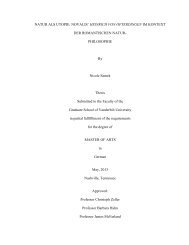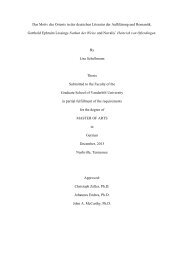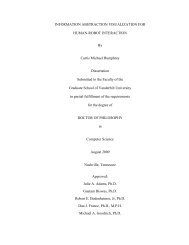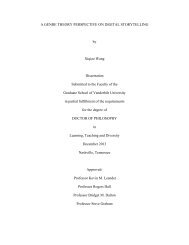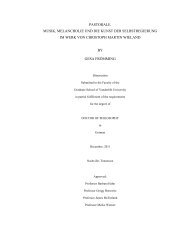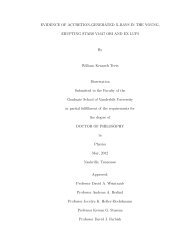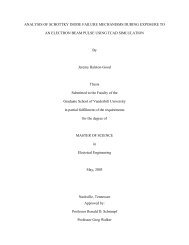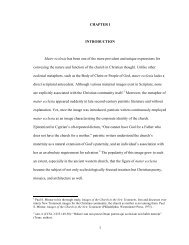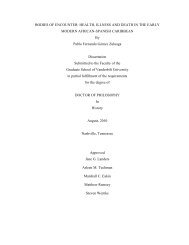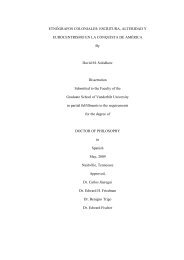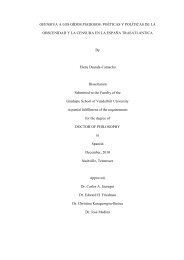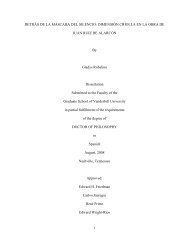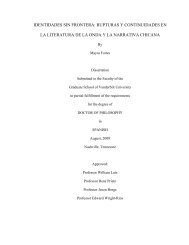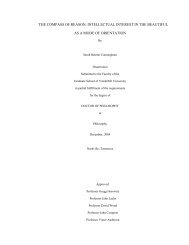THE DEATH OF DIONYSOS - ETD - Vanderbilt University
THE DEATH OF DIONYSOS - ETD - Vanderbilt University
THE DEATH OF DIONYSOS - ETD - Vanderbilt University
You also want an ePaper? Increase the reach of your titles
YUMPU automatically turns print PDFs into web optimized ePapers that Google loves.
attachment to Mariane and the theater, Schlechta traces through the rest of the novel a<br />
constant and ever farther departure of Wilhelm from the immediate experience of life.<br />
Pulling no punches, Schlechta lays the blame for this decline squarely on the Abbé and his<br />
secret Society of the Tower. While we will have our differences with Schlechta, his<br />
accusing finger nevertheless points to the pivot on which the fate of Goethe’s protagonist<br />
undoubtedly turns. The novel that was the subject of a lengthy correspondence with<br />
Schiller was, we now know, based on a lengthy fragment from Goethe’s pre-Italy<br />
production. Since the discovery in the twentieth century of a fragment now known as<br />
Wilhelm Meisters theatralische Sendung (Wilhelm Meister’s Theatric Calling), we can<br />
compare the fragment with the parallel first five books of the Lehrjahre.<br />
Without doubt, what sets the first five books of the Lehrjahre apart from the last<br />
three is the introduction and significant presence in the latter of the Tower Society.<br />
Moreover, even as he reinscribed Wilhelm’s youthful attachment to the theater, turning<br />
the theatric vocation of the fragment into a mistake that Wilhelm must learn to recognize<br />
as such–Goethe inserted into Wilhelm’s vacation from middle-class respectability<br />
encounters with characters who later turn out to be associated with the Tower. These drop<br />
sometimes small, sometimes bigger hints that Wilhelm is pursuing life on the wrong track;<br />
that his understanding of his life and the world around him is mistaken. In view of the<br />
central, if partly hidden conceptual significance of the Tower in the Lehrjahre, we will<br />
have to consider in what relation it stands to Wilhelm’s evolving consciousness. This<br />
does not mean that we must share Schlechta’s assumptions about what value should be<br />
placed on Wilhelm’s early love and views, or about how (and why) these change in the<br />
course of his experiences and development. It does mean, though, that both the symbolic<br />
significance and real influence of the Tower will have to be addressed and accounted for.<br />
I have chosen to begin with an exploration of the very concept of experience<br />
(Erfahrung) in the novel, especially as it relates to the nature and quality of Wilhelm’s<br />
experiences. Edmund Husserl has taught us that consciousness is not simply the passive<br />
xii



